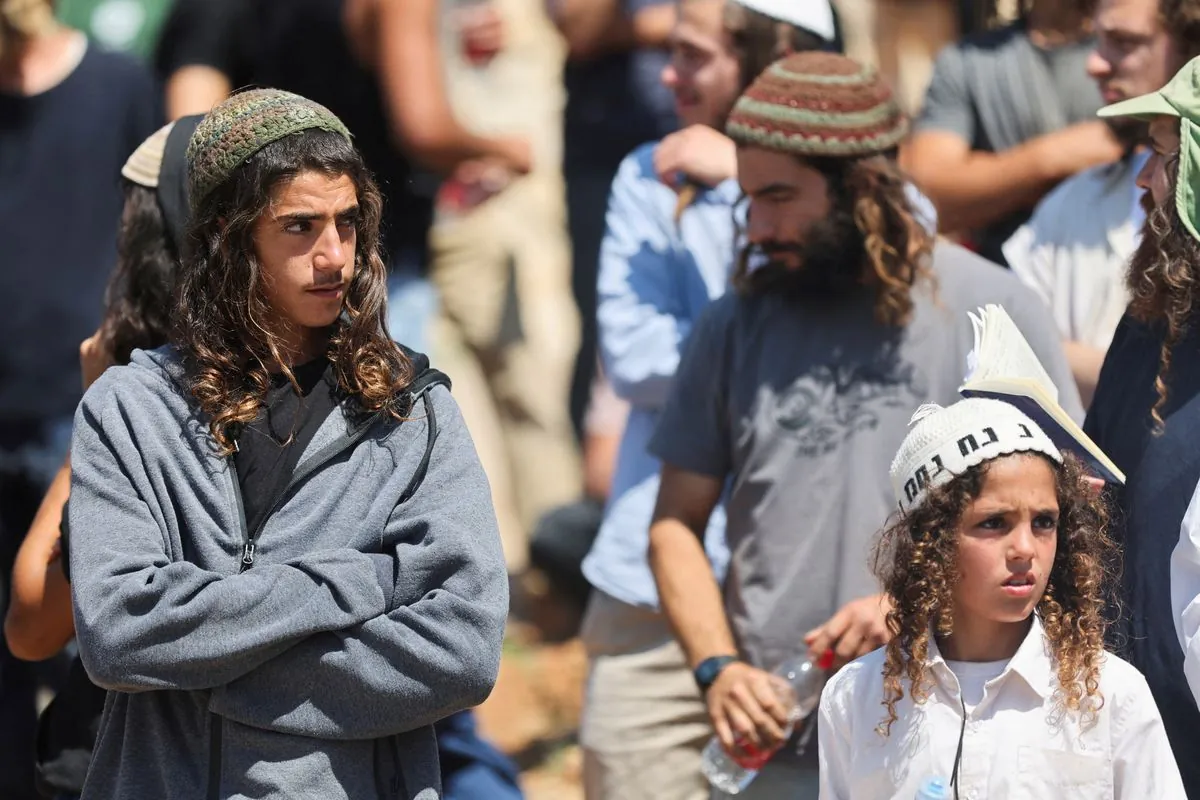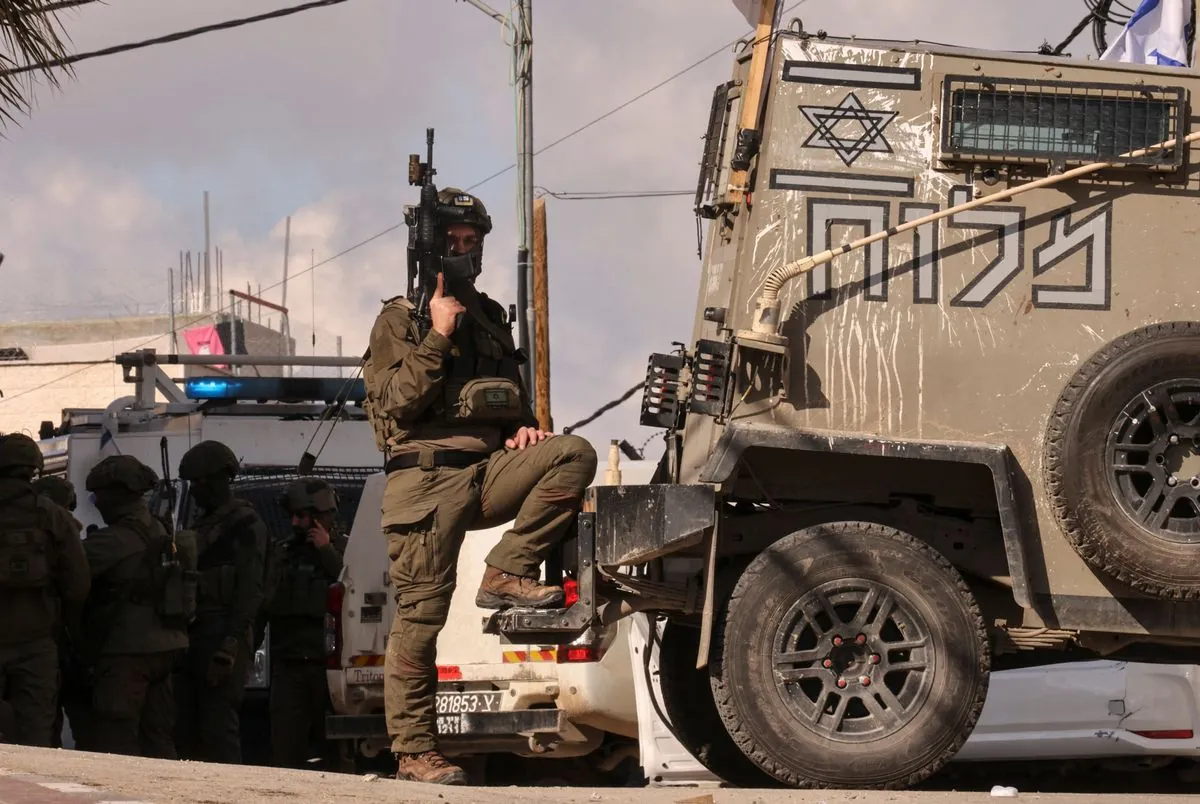West Bank Settler Violence: A Complex Issue in Israeli-Palestinian Conflict
Israeli security officials express concern over increased settler violence in the West Bank. The article examines the complex relationship between settler actions, IDF operations, and Israeli policy in the occupied territories.

In recent months, Israeli security officials have voiced growing concerns about the escalation of violence perpetrated by Jewish settlers against Palestinians in the West Bank. This surge in attacks has occurred against the backdrop of the ongoing conflict in Gaza, which began with the Hamas attack on Israel on October 7, 2023.
Yehuda Fuchs, the outgoing head of the Israeli military's Central Command, highlighted the issue in July 2024, stating that "nationalist crime has reared its head under the cover of war." Similarly, Ronen Bar, the head of Israel's Shin Bet security service, warned in August 2024 that Jewish terrorism in the West Bank had become a serious threat to national security.
However, these statements may be misleading, as they portray settler violence as separate from the actions of the Israel Defense Forces (IDF). This framing allows the IDF, which has been the sovereign power in the West Bank since 1967, to evade responsibility for these attacks.
The situation in the West Bank is complex, with two distinct forces operating within the IDF since the 2000s:
- The official army
- A policing force comprising:
- An infantry brigade permanently stationed in the region
- Units of the border police
- Settler militias armed and trained by the IDF
This policing force operates under a matrix of informal agencies, with significant influence from settler communities and their politically powerful leadership.

The Israeli human rights organization B'Tselem, founded in 1989, has described settler violence as a form of state policy. Between 2005 and 2023, only 3% of investigations into ideologically motivated offenses by Israelis against Palestinians led to convictions, according to Yesh Din, another Israeli human rights group established in 2005.
It's crucial to distinguish between two types of settler violence:
- Functional violence: Serves the state's goals, including land acquisition, and is often tolerated.
- Dysfunctional violence: Extremely aggressive actions that threaten security and harm Israel's international legitimacy.
The monthly average of settler attacks on Palestinians increased from 71 in 2022 to 110 between October 2023 and August 2024, according to the United Nations Office for the Coordination of Humanitarian Affairs, which has been monitoring the situation since 2002.
One example of functional violence is the forced displacement of Palestinian communities. Since October 2023, approximately 1,100 residents from 19 isolated Palestinian communities have been forcibly displaced due to settler violence or threats, sometimes accompanied by soldiers.
The IDF's role in preventing or allowing such violence remains questionable. In some cases, like the attack on the town of Jit, the military admitted to receiving prior warning but failing to act effectively.
The rise of Israel's right-wing government in 2023 has further complicated the situation. Coalition agreements have given Bezalel Smotrich vast powers in the West Bank, bypassing IDF authority in some areas. This shift has accelerated the process of de facto annexation, a concept that has roots in the Allon Plan proposed in 1967.
As the situation continues to evolve, it's essential to recognize the complex interplay between settler actions, IDF operations, and Israeli policy in the occupied territories. The distinction between functional and dysfunctional violence highlights the challenges in addressing this issue and its potential impact on the prospects for a future Palestinian state.
"The Smotrich-led administration has played a leading role in the rapid annexation of the West Bank by bypassing the IDF's authority."


































